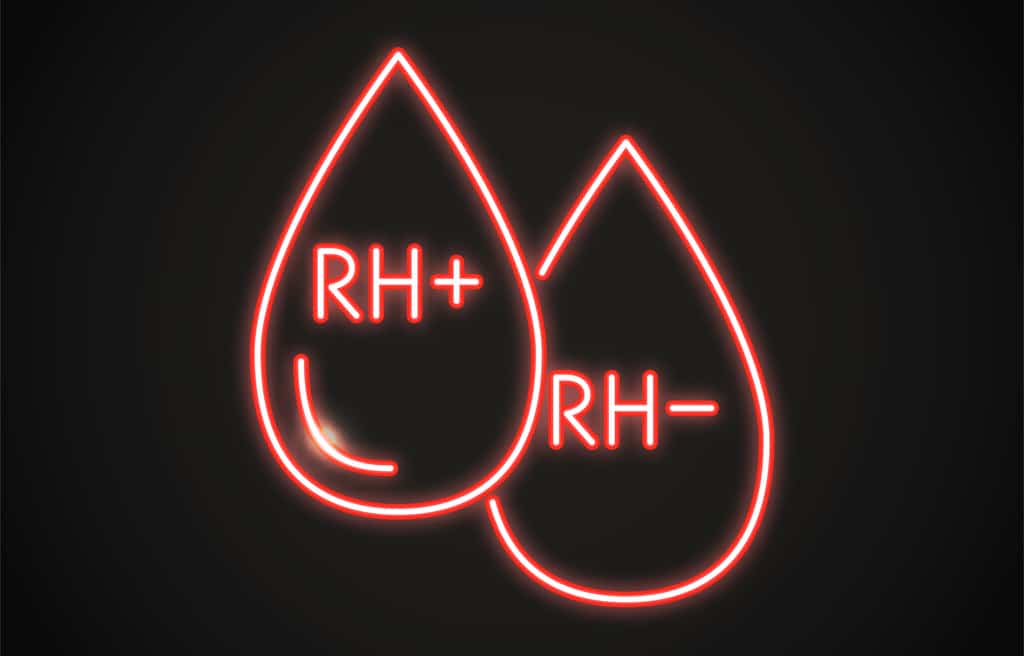One of the first things a medical provider might do when a person suspects they are pregnant is order a blood test. Not only will this test confirm a pregnancy, it will also confirm the mother’s blood type.
While you might think that knowing your blood type is only necessary when a transfusion is possible, here at Alzein Pediatrics, we understand that incompatible Rh Factors, that “positive” or “negative” after A, B, AB or O, can cause life-threatening complications during and after pregnancy, for both mother and baby.
The Rh Factor is a protein found on the surface of red blood cells that is inherited from the biological parents. If your blood has the protein, you’re Rh-positive. If your blood doesn’t have the protein, you’re Rh-negative. For example, you might be O- (O Negative) which is blood type O and Rh Factor negative.
Karl Landsteiner first discovered two blood types, A and O, in 1901 after disastrous results in blood transfusion attempts. In 1940, Landsteiner and scientist Alexander Weiner discovered the Rh protein and concluded that not everyone’s blood cells had this protein.
Approximately 15% of women in the United States and 17% in Europe lack the protein on their red blood cells and are Rh-negative. In Africa, a negative Rh is rare, about 1-3% of women, but in Saudi Arabia, as many as 29% of women are Rh-negative.
Having an Rh negative blood type is not an illness, and it usually does not affect your health. However, if a mother is Rh-negative and her baby is Rh-positive, it can cause serious complications if not identified and treated. Rh Incompatibility happens in the United States in about 1 in 1,000 births. It’s more common in individuals who did not have access to quality healthcare and prenatal testing during their pregnancy. Rh Incompatibility prompts the mother’s immune system to make antibodies and become “sensitized” to future fetus’s red blood cells.
Those antibodies aren’t a problem during the first pregnancy, but problems can happen if an Rh-negative person becomes pregnant again. During subsequent pregnancies, the antibodies produced by the mother enter the fetus’ bloodstream and attack the baby’s red blood cells, resulting in “Rh Disease.” Red blood cells are needed to carry oxygen throughout the body. When red blood cells are destroyed faster than the baby’s body can replace them, it causes life-threatening anemia. In fact, more than half of fetuses or newborns with “Rh Disease” die; those with severe disease who do survive may have significant brain damage or long term disabilities.
When an Rh-negative person becomes pregnant again (after a live birth, a miscarriage or an abortion) and for each subsequent pregnancy, they will typically need to have an Antibody Screen blood test performed several times. Rh-negative people will have this test during the first trimester, during week 28 of pregnancy and when the baby is born. Some pregnant people may need the test more often.
Rh incompatibility is almost completely preventable. The RhoGAM vaccine containing anti-Rh immune globulins was developed in the 1960’s by a team including William Pollack, Vincent J. Freda and John G. Forman. The vaccine prevents RH Incompatibility in mothers who are Rh-negative. These injections prevent the development of antibodies against Rh-positive blood of the baby.
Pregnant people with Rh-negative blood type must get RhoGAM injections:
- During every pregnancy
- After a miscarriage or abortion
- After prenatal tests such as amniocentesis and chorionic villus biopsy
- After injury to the abdomen during pregnancy
When mother is Rh-negative and the father/sperm donor of the infant is Rh-positive or his blood type is not known, the mother is given an injection of RhoGAM during the second trimester. If the baby’s blood type is Rh-positive, the mother will get a second injection of RhoGAM within a few days after delivery. Rh-negative mothers should be followed closely by their providers during pregnancy.
RhoGAM is estimated to save about $1 billion dollars each year in health care costs, and there has not been a single fatality from Rh Incompatibility when the vaccine is used. When Rh Incompatibility is avoided with the RhoGAM vaccine, children experience no side effects and no complications.
Do you have questions about Rh factor, blood type or Rh Disease? Send Alzein Pediatrics a message via your portal and we will be happy to help!


